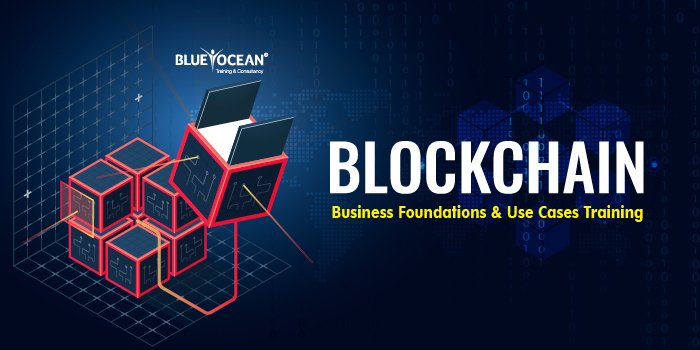Free webinar on demystifying blockchain

Blockchain is rapidly transforming the modern-day business landscape. It is quickly becoming the backbone of modern ledger systems. Being the most disruptive technology of its decade, Blockchain is set to shape the future of our financial system, supply chain and record keeping. The webinar conducted by Blue Ocean Academy on the topic ‘Blockchain Demystified’ focussed on how blockchain works, its applications, use cases and implementation strategies.
Following are the important points discussed in the webinar:
Blockchain is a consensus-based secure decentralized public/private database which stores information immutably over a peer-to-peer network. The blockchain technique allows digital information to be distributed, rather than copied. This distributed ledger provides transparency, trust, and data security. One of the most popular examples of blockchain is bitcoin. It involves sending digital currency called cryptocurrency to another person directly without involving intermediaries.
The genesis block is the first block in any blockchain-based protocol. It is the basis on which additional blocks are added to form a chain of blocks, hence the term blockchain. It is difficult to edit information in a blockchain as blocks are interrelated. If they change one, they will have to change the other blocks too.
A single internal blockchain network cannot possibly serve all industries, granted the vastly different needs of business and individual users. This had led to the creation of numerous blockchain networks, each with a slightly different set of protocols, while the back pillars remain the same. Despite the vast number of blockchain network available at this moment of time, the market has two types of blockchain:
- Permissionless (public)- In this blockchain, the public validates the transaction information.
- Permissioned (private)- In this type, transaction information is validated by a selected group approved by the blockchain owner.
Application of blockchain
- Financial services: Faster, cheaper settlements could save billions of dollars in transaction costs, while improving transparency.
- Automotive: Consumers can use the blockchain to manage fractional ownership in autonomous cars.
- Voting: Using the blockchain code, constituents can cast their votes by phone/computer resulting in immediately verifiable results.
- Healthcare: Patient’s encrypted health information can be shared with multiple providers, without the risk of a privacy breach.
Blockchain use cases in supply chain management
The use of blockchain technology in supply chain management can give various benefits to the organizations as well as consumers. The main benefit is traceability. It helps to visualize the entire supply chain as many of the customers demand sourcing information on the products they buy.
It also provides transparency in the supply chain to reduce fraud in the case of products like drugs. However, many organizations are reluctant to implement this technology as it exposes information to the public. It can have an adverse impact on their business if they aren’t complying with the existing rules.


